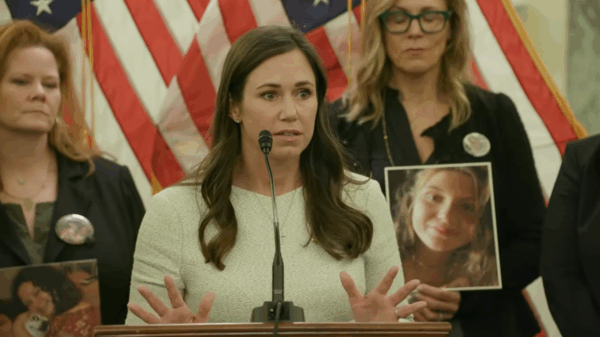State Sen. April Weaver, R – Brierfield, announced on Monday she is introducing legislation that will add material produced through artificial intelligence or “deepfake” technology to Alabama’s existing statute prohibiting child pornography.
The legislation was prompted by a recent incident in Demopolis in which photographs of female middle school students were uploaded to an artificial intelligence website by classmates and used to make lewd and pornographic images of them.
“With the expansion and easy accessibility of artificial intelligence, some individuals are using it for immoral purposes, and we must take every step necessary to ensure that innocent and vulnerable children remain protected,” Weaver said. “As digital technology continues to advance, our laws that protect Alabamians of all ages from harm must keep pace and adapt to it.”
“Deepfake” technology uses artificial intelligence to place recognizable individuals in photos, videos, and other material that they did not participate in or consent to producing. Often associated with celebrities, “deepfake” material is commonly used to attack and depict non-celebrity individuals, as well. Much of the deepfake material produced with A.I. technology is pornographic in nature and often depicts children under 18 years of age.
The state’s child pornography statute currently declares it unlawful for any individual to knowingly disseminate, display, possess or produce obscene material involving minors, but it does not specially address digitally-produced or manipulated media. Weaver’s bill adds material created through “digitization or any other electronic process“ to the list of banned child pornography media and also prohibits “deepfake” depictions of children.
Penalties and punishments for violating Alabama’s child pornography statute remain unchanged.
Weaver pre-filed the bill today in advance of the 2024 regular legislative session, which is scheduled to convene in Montgomery today, February 6.



















































